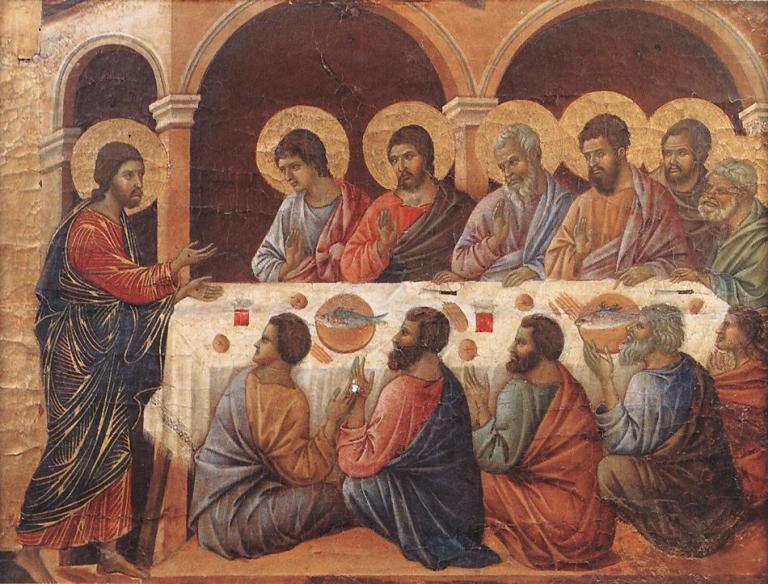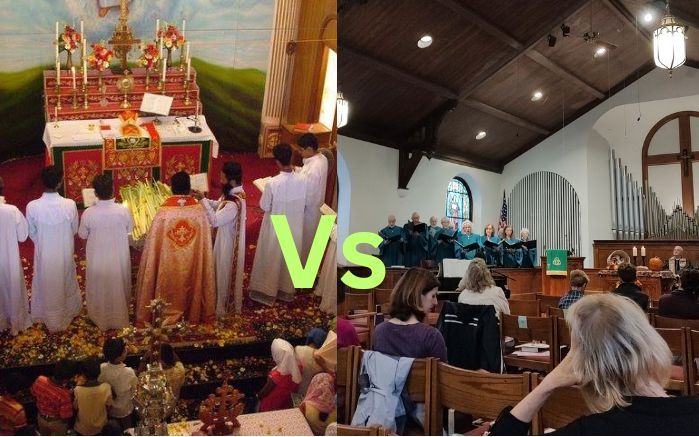Why Did Jesus Eat Fish After His Resurrection?
Scholars and theologians have been puzzled for hundreds of years by the story that Jesus ate fish after he rose from the dead. At first glance, it seems like an insignificant detail. Why would Jesus, who had just come back from the dead, take the time to eat a piece of fish?
However, upon closer examination, this seemingly mundane detail holds great significance for our understanding of Jesus’ post-resurrection ministry and the theology of early Christianity.

Historical and Cultural Context
To figure out why Jesus ate fish after he was resurrected, we have to look at the history and culture of Palestine in the first century. In Jewish culture, there were strict rules about what you could and couldn’t eat, like not eating pork or shellfish.
However, fish was considered a clean food and was a staple in the diet of many people in the region. It’s also worth noting that fish was a common symbol in early Christianity, as the Greek word for fish, “ichthys,” served as an acronym for “Jesus Christ, Son of God, Savior.”
Scriptural Evidence
With this cultural and historical context in mind, we can turn to the scriptural evidence to see what the Bible says about Jesus eating fish after his resurrection. In the Gospel of Luke, we read that after Jesus appeared to his disciples, he asked them for something to eat.
They gave him a piece of broiled fish, and he ate it in front of them (Luke 24:41-43). Similarly, in the Gospel of John, Jesus appears to his disciples while they are fishing and asks them if they have any fish. When they respond that they do, Jesus tells them to bring some of the fish they’ve caught, and he eats it with them (John 21:1-14).
Theological Interpretations
At first glance, these passages might seem like nothing more than a simple recounting of events. However, Jesus eating fish after his resurrection has several theological implications. First and foremost, it shows that Jesus had a real body after he was raised from the dead.
This was important because some early Christians believed in the Greek concept of the soul being separate from the body. By eating fish, Jesus demonstrated that he had a physical body that could interact with the physical world.
Furthermore, the act of eating fish carries Eucharistic symbolism. In the Catholic tradition, the Eucharist is a sacrament that involves the consumption of bread and wine, which are believed to represent the body and blood of Jesus.
By eating fish with his disciples, Jesus is emphasizing the importance of physical, tangible elements in our relationship with God. This is in line with the Catholic belief in the real presence of Jesus in the Eucharist.
Another way to look at the fact that Jesus ate fish after his resurrection is that it shows that his work on Earth did not stop. By appearing to his disciples and eating with them,
Jesus is showing that he is still present with them and still cares for their physical needs. This is consistent with his ministry during his time on Earth, where he performed miracles and provided food for the hungry.
Alternative Explanations
Of course, not everyone agrees with these theological interpretations of Jesus eating fish after his resurrection. Some scholars argue that the story was included for historical accuracy, as fish was a common food at the time. Others suggest that Jesus simply ate the fish because he was hungry, and there is no deeper theological significance to the act.
In the end, people have different ideas about what it means that Jesus ate fish after his resurrection. But no matter how we understand the story, it has a number of lessons for modern Christianity.
First and foremost, it shows us how important it is for our faith to have things we can see and touch. We can’t just believe in Jesus in our hearts; we must also participate in the physical rituals of our faith, such as the Eucharist.
Also, the story of Jesus eating fish after his resurrection shows how important it is for our relationship with God to stay the same. Just as Jesus continued his ministry after his resurrection, we too must continue to live out our faith in our daily lives. This means caring for the physical needs of those around us, just as Jesus cared for his disciples by eating with them.
Lastly, the story about Jesus eating fish after he rose from the dead reminds us to look for deeper theological meaning in things that seem ordinary. It’s easy to forget how important something as simple as eating fish is, but when we look at the historical, cultural, and theological contexts, we can gain a deeper understanding of the story and what it means.
Conclusion
In conclusion, the story about Jesus eating fish after he rose from the dead is very important for understanding his ministry after he rose from the dead and early Christian theology. By looking at the historical and cultural background as well as the Bible’s evidence, we can see what this seemingly unimportant detail means from a theological point of view.
Ultimately, the story reminds us of the importance of physical, tangible elements in our faith, the continuity of our relationship with God, and the deeper theological significance that can be found in even the smallest details.

Sangtea Hmar is a passionate leader of the Youth Christian Fellowship at the Electric Vengthlang Presbyterian Church in Aizawl, Mizoram, India. He is the owner of Christiantone.com and is committed to spreading the word of God. He loves to mentor youth and help them grow in their faith.






